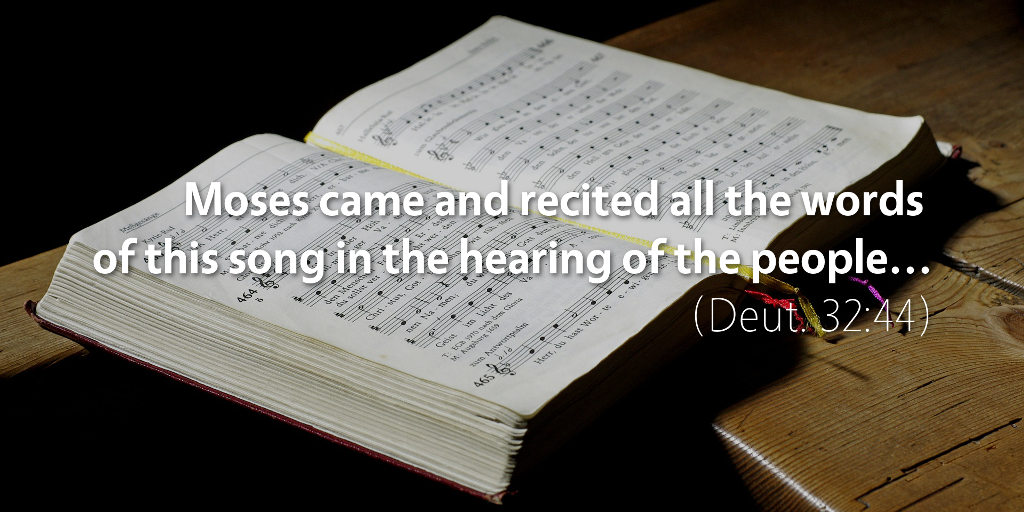Bible Readings for June 27th
Deuteronomy 32 | Psalm 119:121–144 | Isaiah 59 | Matthew 7
Moses has given the entire law to the people of Israel, but in Deuteronomy 32, he takes a different approach to impress upon his people the necessity of obeying Yahweh: he sings to them a song. In this song, Moses acts out the story of Israel’s history with Yahweh and then he warns them of the dangers of departing from their covenant.
To begin, Moses calls heaven and earth to give ear to the words of his mouth (Deut. 32:1)—possibly to bear witness against Israel if they violated the covenant of which he was singing, as in Deuteronomy 30:19. He praises Yahweh as the eternal Rock, whose work in creation is perfect, even though humankind rebelled against him, dealing corruptly because of the blemish of the fall (Deut. 32:4–8).
But Yahweh, Moses sings, nevertheless extended free grace to Jeshurun (i.e., to Jacob and Jacob’s descendants; Deut. 32:9), calling his people out of the desert wilderness, feeding him with the finest foods and foaming wine (Deut. 32:9–14). And when Jeshurun grew fat under the blessings of Yahweh, he did not praise God with gratitude but instead sought out false gods. Because of this false worship, Moses sings of the curses that Yahweh sends against Jeshurun (Deut. 32:15–42).
While some of what Moses sings here might represent key sins that have already happened—for example, the incident with the golden calf (Ex. 32) or the Baal worship at Peor (Num. 25)—the primary purpose is to be a warning to the people of Israel not to rebel. So, Moses solemnly charges them, “Take to heart all the words by which I am warning you today, that you may command them to your children, that they may be careful to do all the words of this law. For it is no empty word for you, but your very life, and by this word you shall live long in the land that you are going over the Jordan to possess” (Deut. 32:46–47).
Singing is an important part of the worship of God’s people. When we sing the story of creation, sin, redemption, and the hope of glory, we engage with the story in a different way than when we simply read it or listen to it—by singing it, we engage with the story personally.
So, we are commanded to “Let the word of Christ dwell in you richly, teaching and admonishing one another in all wisdom, singing psalms and hymns and spiritual songs, with thankfulness in your hearts to God” (Col. 3:16). Just as Moses commanded the people of Israel to take to heart all his words, so we are commanded to let Christ’s word dwell in us richly.
“Oh come, let us sing to the LORD; let us make a joyful noise to the rock of our salvation!” (Psalm 95:1).
Podcast: Play in new window | Download (4.7MB) | Embed
Subscribe: Apple Podcasts | RSS | More

Scripture quotations are from The Holy Bible, English Standard Version copyright © 2001 by Crossway Bibles, a division of Good News Publishers. Used by permission. All rights reserved.


